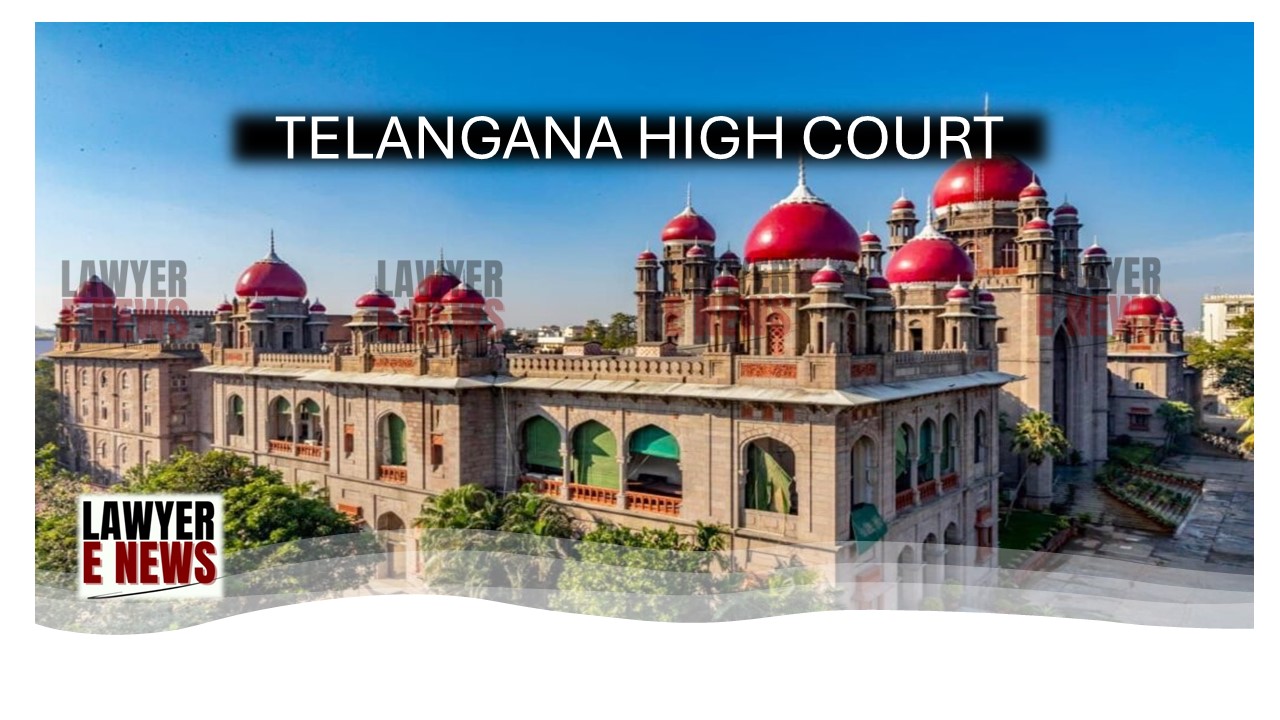-
by Admin
18 February 2026 2:25 PM



"Police Authorities Cannot Circumvent Fundamental Rights by Filing Successive FIRs for Identical Allegations," - In a landmark judgment Telangana High Court has reiterated that registering multiple FIRs relating to the same occurrence violates the well-established constitutional principle known as the "test of sameness." The Court quashed two successive FIRs (Cr.No.154 and Cr.No.155 of 2024) and set aside the consequent remand orders, finding them to be an abuse of process and an illegal circumvention of the accused’s fundamental rights.
Justice K. Lakshman, delivering the verdict, declared, "When the allegations arise from the same cause of action, place, time, incident and parties, registration of multiple FIRs is unconstitutional and unsustainable."
The petitioners were arrested in connection with a protest at Lagcherla village, Kamareddy District, where they allegedly obstructed and attacked public officials during a public hearing for the proposed establishment of a pharma company. Based on the same incident, three separate FIRs—Cr.Nos.153, 154, and 155—were registered against the petitioners by the Bomraspet Police Station. Challenging the second and third FIRs, the petitioners contended that the acts alleged were part of one continuing transaction and thus, could not form the basis for multiple prosecutions.
The Telangana High Court framed the pivotal issue as whether registration of successive FIRs arising from the same transaction involving the same accused was legally tenable.
The Court held unequivocally that "registration of multiple FIRs for the same incident amounts to an abuse of the criminal justice process and infringes the right to life and personal liberty under Article 21 of the Constitution." Justice K. Lakshman cited the Supreme Court’s authoritative ruling in T.T. Antony v. State of Kerala, which laid down that "there cannot be a second FIR and consequently no fresh investigation on receipt of every subsequent information in respect of the same occurrence."
The judgment warned that fragmenting the investigation by filing successive FIRs "would lead to conflicting versions, prolonged trials, double jeopardy and serious miscarriage of justice."
The Court pointedly noted that the subsequent complaints were "mechanically drafted by the Writer of Bomraspet Police Station," and that even the de facto complainants—being senior administrative officials like the District Collector and Tahsildar—had not personally narrated fresh facts or unique incidents to justify a separate FIR.
"The fundamental test is whether the subsequent FIR discloses a distinct offence, which is separate and independent from the first. If not, it must be quashed to preserve the sanctity of criminal law," the Court ruled.
In finding for the petitioners, the Court invoked other landmark decisions including Upkar Singh v. Ved Prakash, Akbaruddin Owaisi v. State of Andhra Pradesh, and Babubhai v. State of Gujarat, reiterating that the test for sameness is well entrenched and must be scrupulously adhered to.
Justice K. Lakshman declared that Cr.Nos.154 and 155 of 2024 were "nothing but a reiteration and repetition of the allegations contained in Cr.No.153 of 2024" and could not be maintained separately. The Court directed that all material collected during the so-called ‘investigations’ under the quashed FIRs be treated as part of the primary FIR (Cr.No.153 of 2024).
"The respondents have illegally registered multiple FIRs with an intention to harass the petitioners and to frustrate their legal rights," the Court recorded in strong terms.
Consequently, the High Court allowed the Criminal Petition No. 641 of 2025, quashed FIRs Cr.No.154 and Cr.No.155 of 2024, and directed that any evidence or witnesses relevant to the incident should be used only under the umbrella of Cr.No.153 of 2024.
This judgment fortifies the protection available against arbitrary and oppressive police action and reaffirms the constitutional mandate that ensures a citizen is not subjected to multiple prosecutions for the same cause. The Telangana High Court has sent a stern message that the "test of sameness" is not a technicality but a fundamental safeguard woven into the very fabric of criminal law and constitutional jurisprudence.
Justice K. Lakshman concluded emphatically, "Multiplicity of FIRs based on the same set of facts and allegations is impermissible. To hold otherwise would mean permitting law enforcement authorities to ride roughshod over constitutional rights."
Date of Decision: 21 April 2025
